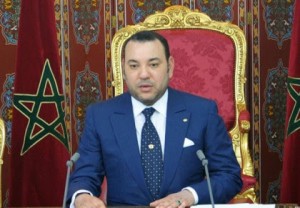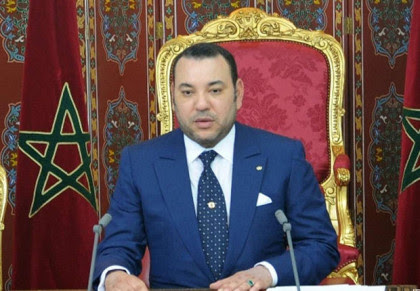Reuters
By Aziz El Yaakoubi

Morocco’s King Mohammed on Friday launched a 18 billion Moroccan dirham ($1.85 billion) investment plan in Western Sahara driven by the country’s state-run phosphate company OCP, the state news agency MAP reported.
Morocco has controlled most of Western Sahara since 1975 and claims the sparsely populated stretch of desert, which has offshore fishing, phosphate reserves and oilfield potential, as its own territory.
Morocco’s annexation of Western Sahara prompted a rebellion by the opposition Polisario Front, which has been backed by Morocco’s neighbour Algeria. The United Nations brokered a ceasefire in 1991, but talks have since failed to find a settlement in Africa’s longest-running territorial dispute.
Rabat invests heavily there, hoping to calm social unrest and independence claims.
The plan includes investments of 8.3 billion dirhams in a new fertilizer plant, 4.2 billion dirhams in a new port near the city of Laayoune and 3.1 billion dirhams in other phosphate industrial facilities, MAP said.
The plants and the port will be based in the industrial hub of OCP’s subsidiary Phosboucraa in al-Marsa near Laayoune, 100 kilometers (62.14 miles) from Phosboucraa’s mines.
The announcement came few days after OCP, the world’s leading phosphate exporter, started production at a new fertilizer plant dedicated to the African market in the Jorf Lasfar area on the Atlantic coast where it invested 5.3 billion dirhams.
The company is building three other units in the same hub with a capacity to produce 1 million tonnes of fertilizer each, it said.
OCP, a major earner of foreign currency for Morocco, posted a 66 percent jump in net profit for the first half of 2015 to 3.99 billion dirhams, helped by a strong U.S. dollar.
It has invested heavily and made a series of acquisitions to improve its infrastructure and boost output. It aims to raise output to 47 million tonnes of crude phosphate rock in 2017, from around 34 million tonnes in 2013.
The company says it wants to become the world’s top fertilizer producer by increasing fertilizer production to 12 million tonnes by 2017, up from 4.5 million tonnes in 2010.
($1 = 9.7505 Moroccan dirham)
(Reporting By Aziz El Yaakoubi, editing by David Evans)







